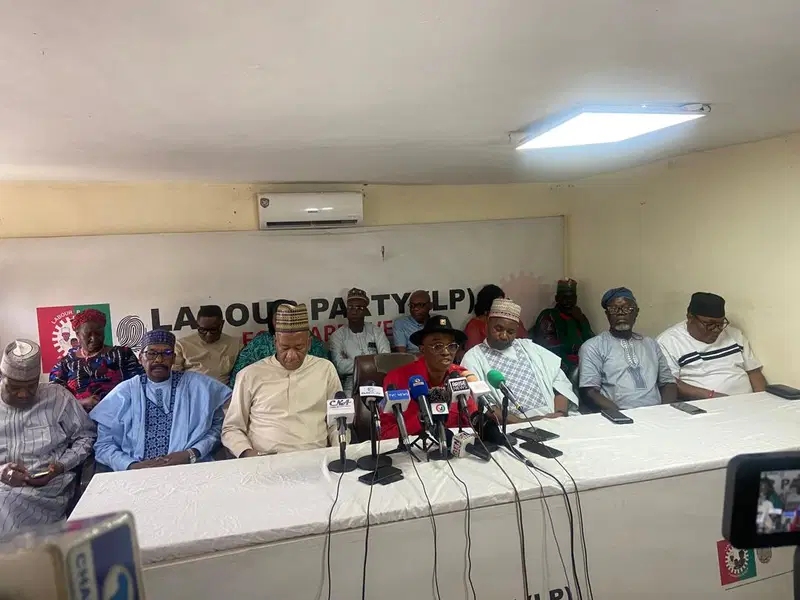Politics
Datti Baba-Ahmed meets Abure-led Labour Party faction, vows to restore unity

Yusuf Datti Baba-Ahmed, the former vice-presidential candidate of the Labour Party (LP), on Monday held a meeting with the Julius Abure-led faction of the party, as internal leadership tensions continue to rock the opposition party.
The Labour Party is currently embroiled in a deepening crisis that has resulted in the emergence of parallel factions. While Abure maintains control over one faction, a rival group is headed by former Minister of Finance, Usman Nenadi, who serves as its interim national chairman.
The division has cast a shadow over the party’s preparations for the 2027 general elections, with both factions claiming legitimacy and control of party structures.
READ ALSO: ‘Why Peter Obi, El-Rufai haven’t officially joined ADC yet’
Speaking in Abuja at the national executive committee’s (NEC) meeting convened by the Abure faction of the LP, Baba-Ahmed emphasised the importance of unity in rebuilding the party after the 2023 elections.
Advertisement
He said LP is “not a party to walk away from,” adding that “the successes and the history that the Labour Party of Nigeria has recorded are unique and unprecedented”.
Baba-Ahmed described himself as a loyal party man, adding that his mission is to reconcile divergent opinions and resist hasty political coalitions.
“I am here as a peacemaker to reconcile divergent opinions. I’m very proud to say that I did attend meetings of a certain attempt for a coalition in Nigeria,” he said.
Advertisement
“Morally speaking, if your neighbourhood invites you to discuss security, you must attend.
“However, if you attend and they discuss other matters besides that, you are at liberty to restore yourself to your former position.
“I have attended and I have listened to the coalition attempts, yet I remain in the Labour Party. I am not one to sleepwalk into any political arrangements.”
Baba-Ahmed recalled the 2015 coalition that led to the removal of an incumbent Nigerian government but warned that “the government that follows is even more important than the act of removing the government itself.”





















